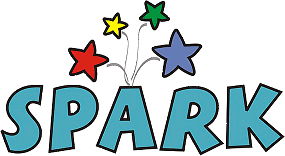SPARK. Scheduling and Planning Applications woRKshop

The International Scheduling and Planning Applications woRKshop (SPARK) aims to provide a stable forum on relevant topics connected to application-focused research and the deployment of P&S systems. Application domains that entail planning and scheduling (P&S) problems present a set of interesting modeling, technological and institutional challenges to the AI planning and scheduling community that are becoming more and more frequently affordable for AI. SPARK aims at fostering the practical application of advances made in the AI P&S community.
The websites of the previous editions of the workshop series are available at http://decsai.ugr.es/~lcv/SPARK/.
Proceedings
The full SPARK proceedings are available as pdf.
The single papers are also linked in the schedule.
Schedule
The workshop will be held on June 13, 2011 in hall 101–00–036 on the computer science campus.
| 09:00-09:10 | Welcome and Introduction |
| Invited Talk | |
| 09:10-10:00 |
Luis Castillo Vidal Lessons Learned Empowering Smart Applications with Planning Technology |
| Session 1: P&S Under Uncertainty & Execution | |
| 10:00-10:15 |
Romain Grasset-Bourdel, Gérard Verfaillie and Antoine Flipo Planning and Replanning for a Constellation of Agile Earth Observation Satellites (pdf) |
| 10:15-10:30 |
Amedeo Cesta, Gabriella Cortellessa, Riccardo De Benedictis and Keith
Strickland Opening the PANDORA-BOX: Planning and Executing Timelines in a Training Environment (pdf) |
| Coffee Break | |
| Session 1 cont'd: P&S Under Uncertainty & Execution | |
| 11:00-11:25 |
Zachary Rubinstein and Stephen Smith Dynamic Management of Paratransit Vehicle Schedules (pdf) |
| 11:25-11:50 |
Nicolas Meuleau, Christian Neukom, Christian Plaunt, David Smith and Tristan
Smith The Emergency Landing Planner Experiment (pdf) |
| 11:50-12:15 |
Maliheh Aramon Bajestani and J. Christopher Beck Scheduling a Dynamic Aircraft Repair Shop (pdf) |
| 12:15-12:30 | Commentary and Discussion |
| Lunch Break | |
| Session 2: Novel Domains for P&S | |
| 14:00-14:25 |
Patrik Haslum and Alban Grastien Diagnosis As Planning: Two Case Studies (pdf) (PDDL encodings on Patrik Haslum's webpage) |
| 14:25-14:40 |
Patrik Haslum Computing Genome Edit Distances using Domain-Independent Planning (pdf) (PDDL encodings on Patrik Haslum's webpage) |
| 14:40-15:05 |
Kartik Talamadupula, Subbarao Kambhampati, Paul Schermerhorn, J. Benton and
Matthias Scheutz Planning for Human-Robot Teaming (pdf) |
| 15:05-15:20 |
Qiang Lu, Yixin Chen, Mart Haitjema, Catalin Roman, Christopher Gill and
Guoliang Chen Temporal Planning for Co-Design of Host Scheduling and Workflow Allocation in Mobile Environments (pdf) |
| 15:20-15:30 | Commentary and Discussion |
| Coffee Break | |
| Session 3: Emerging Applications for P&S | |
| 16:00-16:15 |
Ruben Strenzke and Axel Schulte The MMP: A Mixed-Initiative Mission Planning System for the Multi-Aircraft Domain (pdf) |
| 16:15-16:30 |
Kevin Tierney and Rune Møller Jensen Temporal Optimization Planning for Fleet Repositioning (pdf) |
| 16:30-16:45 |
Franziska Zacharias and Christoph Borst Knowledge Representations for High-level and Low-level Planning (pdf) |
| 16:45-17:05 |
Carmel Domshlak, Ziv Even-Zur, Yannai Golany, Erez Karpas and Yevgeni
Nus Command and Control Training Centers: Computer Generated Forces Meet Classical Planning (pdf) |
| 17:05-17:15 | Commentary and Discussion |
| 17:15-17:45 | Final discussion and Closing remarks |
Invited Talk: Luis Castillo Vidal
Lessons Learned Empowering Smart Applications with Planning Technology
Abstract: Few people would disagree with the success stories of deploying real world planning applications. In this talk we describe the pitfalls we have found since we founded IActive Intelligent Technologies in 2006. IActive specializes in introducing planning technology into existing applications to give them additional decision support capabilities, with tangible and measurable added value. In this talk we discuss the "good" and "not so good" decisions from IActive's experiences.
Accepted Papers
-
Maliheh Aramon Bajestani and J. Christopher Beck
Scheduling a Dynamic Aircraft Repair Shop -
Amedeo Cesta, Gabriella Cortellessa, Riccardo De Benedictis and Keith
Strickland
Opening the PANDORA-BOX: Planning and Executing Timelines in a Training Environment -
Carmel Domshlak, Ziv Even-Zur, Yannai Golany, Erez Karpas and Yevgeni
Nus
Command and Control Training Centers: Computer Generated Forces Meet Classical Planning -
Romain Grasset-Bourdel, Gérard Verfaillie and Antoine Flipo
Planning and Replanning for a Constellation of Agile Earth Observation Satellites -
Patrik Haslum and Alban Grastien
Diagnosis As Planning: Two Case Studies
(PDDL encodings on Patrik Haslum's webpage) -
Patrik Haslum
Computing Genome Edit Distances using Domain-Independent Planning
(PDDL encodings on Patrik Haslum's webpage) -
Qiang Lu, Yixin Chen, Mart Haitjema, Catalin Roman, Christopher Gill and
Guoliang Chen
Temporal Planning for Co-Design of Host Scheduling and Workflow Allocation in Mobile Environments -
Nicolas Meuleau, Christian Neukom, Christian Plaunt, David Smith and Tristan
Smith
The Emergency Landing Planner Experiment -
Zachary Rubinstein and Stephen Smith
Dynamic Management of Paratransit Vehicle Schedules -
Ruben Strenzke and Axel Schulte
The MMP: A Mixed-Initiative Mission Planning System for the Multi-Aircraft Domain -
Kartik Talamadupula, Subbarao Kambhampati, Paul Schermerhorn, J. Benton and
Matthias Scheutz
Planning for Human-Robot Teaming -
Kevin Tierney and Rune Møller Jensen
Temporal Optimization Planning for Fleet Repositioning -
Franziska Zacharias and Christoph Borst
Knowledge Representations for High-level and Low-level Planning
Call for Papers
Workshop Aim
Application domains that entail planning and scheduling (P&S) problems present a set of compelling challenges to the AI planning and scheduling community, from modelling to technological to institutional issues. New real-world domains and problems are becoming more and more frequently affordable challenges for AI. The international Scheduling and Planning Applications woRKshop (SPARK) was established to foster the practical application of advances made in the AI P&S community.
The SPARK'11 workshop, the fourth in the series, aims to provide a stable forum on relevant topics connected to application-focused research and the deployment of P&S systems. Participation from researchers, practitioners, and users are welcomed.
The best papers from SPARK'07 and '08 were invited to a special issue of the journal Computational Intelligence. Discussions for SPARK'09 and '10 papers are in progress. Higher quality papers from the 2011 edition will be similarly invited to a journal special issue or post-proceedings volume.
Format
The workshop will retain the successful format of previous SPARK editions, consisting of a single full day. In order to foster discussion amongst speakers and attendees, reviewers of submissions will be asked to write a public critique of each paper composed by a set of public questions or thoughts, in addition to regular private comments to the authors and confidential comments to the organizers. These critiques will also be provided to the authors in advance of the workshop and distributed among the workshop attendees.
Each session will consist of presentations of technical papers, their commentaries, and a short discussion on the topic of papers. A joint session with related ICAPS'11 workshops is under consideration. The workshop will feature a panel discussion aiming at wrapping up all the relevant issues and challenges as possible propositions for future editions of the series.
Topics
Starting from the results of the previous editions, SPARK'11 will deepen the debate on application-relevant aspects of P&S theory and practice, with the aim of reporting and discussing experiences relating to deploying P&S systems. Topics of the workshop include, but are not limited to:
- Novel domains and benchmark or challenge problems
- Experiences in deploying P&S systems, from their conception to their maturity in practice
- Comparison with previously existing technologies and/or systems
- Integration of operational knowledge from existing legacy components
- Integration of multiple sources of knowledge and reasoning schemes (actions, time, resources)
- Algorithmic and technological issues
- Mixed initiative approaches
- User interface design, visualization and explanation
- Plan execution and replanning
- Handling dynamic and uncertain sources of knowledge
- Machine learning methodologies applied to P&S systems
- Engineering, deployment, and maintenance
- Evaluation, testing, and validation
- Assessment of impact on end users
- Modelling and domain model acquisition
Submission Information
Submissions may be regular papers (preferably 6 pages, although consideration will be given to papers of up to 8 pages) or short position papers (at most 2 pages). All papers should conform to the AAAI style template. Submissions will be reviewed by at least two referees. Interested contributors are invited to communicate their intent to submit to the workshop organizers.
Submissions, in PDF format, may be submitted via the EasyChair site: http://www.easychair.org/conferences/?conf=spark11
All workshop participants must be registered for ICAPS'11.
Important Dates
- Submission deadline for papers: March 25, 2011
- Notification of acceptance/rejection: April 15, 2011
- Final revisions: May 6, 2011
- Workshop date: June 13, 2011
Organization
- Gabriella Cortellessa, ISTC-CNR, Italy
- Minh Do, Palo Alto Research Center, USA
- Riccardo Rasconi, ISTC-CNR, Italy
- Neil Yorke-Smith, American University of Beirut, Lebanon, and SRI International, USA
Programme Committee
- Susanne Biundo, Universitat Ulm, Germany
- Luis Castillo, IActive Intelligent Solutions, Spain
- Steve Chien, NASA JPL, USA
- Gabriella Cortellessa, ISTC-CNR, Italy (co-chair)
- Andrew Davenport, IBM T.J. Watson Research Center, USA
- Mathijs de Weerdt, TU Delft, The Netherlands
- Minh Do, PARC, USA (co-chair)
- Heng-Soon Gan, University of Melbourne, Australia
- Alexandra Kirsch, Technical University of Munich, Germany
- Jana Koehler, Lucerne University of Applied Sciences and Arts, Switzerland
- Tim Menzies, West Virginia University, USA
- Nicola Policella, ESA-ESOC, Germany
- Rong Qu, University of Nottingham, UK
- Riccardo Rasconi, ISTC-CNR, Italy (co-chair)
- Biplav Srivastava, IBM Research, India
- Patrik Haslum, Australian National University, Canberra
- Roman van der Krogt, Cork Constraint Computation Centre, Ireland
- Gerard Verfaillie, ONERA, France
- Neil Yorke-Smith, American University of Beirut, Lebanon, and SRI International, USA (co-chair)

